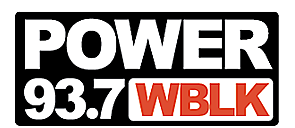
Gov. Hochul Announces $38 Million To Help The Homeless In New York State
Governor Hochul announced that $38.2 million is available in funding for areas outside of New York State to help the unhoused population. The state funding will establish eight Safe Options Support teams, which will provide intensive outreach, engagement, and care coordination services. The teams will operate under the State Office of Mental Health.
Each of the teams will receive $4.7 million over five years. The Safe Options Support teams include behavioral health professionals - licensed clinicians, care managers, and peer specialists. The teams will work with local community resources to help serve individuals in need. Governor Hochul said,
Far too many New Yorkers are living unhoused in our communities, lacking the resources and support they need to get back on their feet. These outreach professionals will help provide immediate assistance and develop a positive relationship with individuals living on the street - helping them access the services they can rely on to start on a path toward stability.

New York State Offers These 6 Programs For Low-Income Residents
Here are some of the programs that New York State offers to people who aren't able to work or make less than a livable wage.
1. Heating Assistance
New Yorkers who need help paying their heating bills this winter can get money from the state now. Governor Kathy Hochul announced that the state's heating assistance program is currently accepting applications. The Home Energy Assistance Program, also known as HEAP, opened for the 2022-2023 winter season on Tuesday, November 1, 2022. Low- and middle-income residents and seniors can apply to receive up to $976 in aid. The assistance payments are distributed by the Office of Temporary and Disability Assistance. New Yorkers who need help can receive one regular benefit per season. If a household is at risk of losing its heat due to a utility shut-off, it could also be eligible for an emergency benefit. Emergency benefits applications will be accepted starting January 3, 2023. New York residents outside of the City can apply here.
2. SNAP
The Supplemental Nutrition Assistance Program provides funds for New Yorkers to buy healthy food. SNAP can provide up to $939 for a family of four to buy bread, dairy products, meats, and produce. In order to apply, recipients must be low-income. A family of four must have an annual gross income of $36,084 or less to qualify. You can check eligibility requirements here.
3. Child Care Cost Assistance
New York State has expanded childcare funding for working and low-income families. The state is distributing $2 billion to help increase the number of families that receive financial support for childcare costs. In August 2022 the eligibility of a family increased from 200 percent to 300 percent, to $83,250 for a family of four. You can get more info about childcare funding from your local Office of Children and Family Services.
4. Discounted Internet Services
Low-income New Yorkers can get discounted internet services through the Affordable Connectivity Program. The program offers residents discounts on internet and broadband services.
- Up to a $30/month discount on your internet service
- Up to a $75/month discount if your household is on qualifying Tribal lands
- A one-time discount of up to $100 for a laptop, tablet, or desktop computer (with a co-payment of more than $10 but less than $50)
- A low cost service plan that may be fully covered through the ACP*
You can see if you're eligible here.
5. Temporary Assistance
Temporary assistance is also known as public assistance. It can help adults who are not employed, unable to work, or who just don't make enough money. There are several types of temporary assistance that are available, including Family Assistance, Safety Net Assistance, and Emergency Assistance. You can find more information about each here.
6. WIC
The Women, Infants and Children (WIC) Program offers assistance to pregnant women, breastfeeding women, postpartum women, and caregivers of infants and children up to age five. Get info on WIC here.
These Counties Have The Most Food Stamp Recipients In New York
These Counties Have The Most HEAP Recipients In New York
More From 93.7 WBLK









